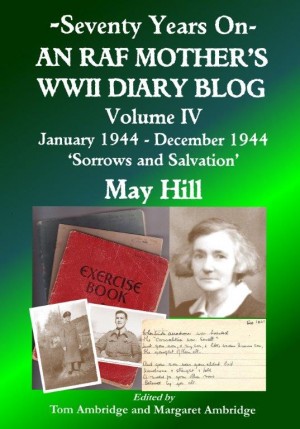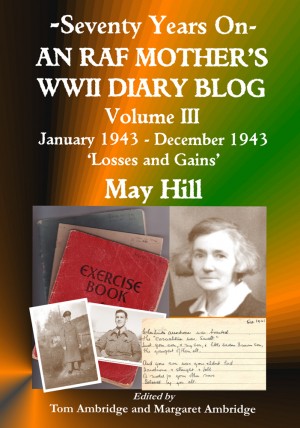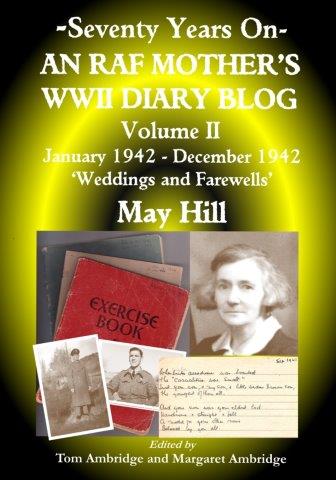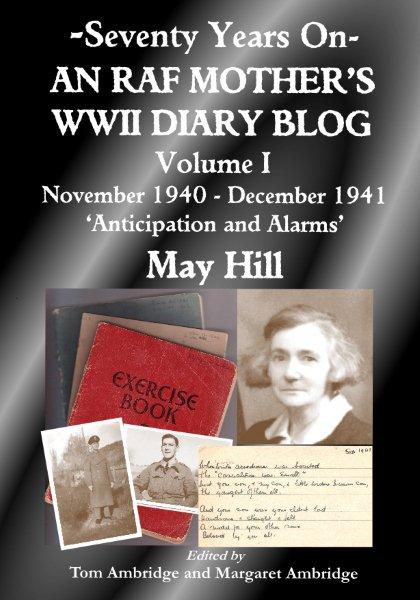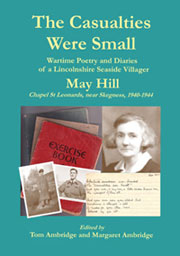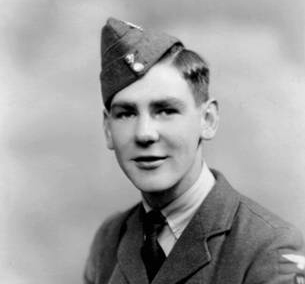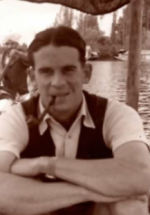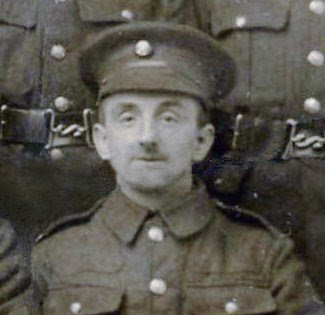So, at last the long-talked of Sec front has begun. I have not even given it a new page and that seems a fitting symbol of how it appears to me. What excitement there may be in towns or elsewhere, in the country, does not seem to have touched us here. It is just an ordinary day, after nearly 5 years of war it takes a lot to make us demonstrative. I went on with my ordinary work and made my first toy for sale, a white duck with green wings and yellow beak and feet. It is for Mrs Russell to give to a baby friend. I must make the rabbit for Emmie next and try to send an extra one too. Ciss cleaned her pantry and Rene washed. Jean went to school, indeed she had gone before the announcement:
4000 ships and a great many smaller craft crossed the channel. Great air-liners took air-borne troops behind the Ger. lines.
Montgomery is speaking now, a message to the troops of which he is the head.
Now a service. Almost 10 o’ clock. The A.B. Cant. [Archbishop of Canterbury] has spoken and now they are singing “Oh God, our help in ages past”.
At nine o’clock the King broadcast a call to prayer, not just one day but all the days of crisis. In the news afterwards we heard that all was still going well in France. I fear the “little people” like us would not just go on with this ordinary work. However pleased they may be at the thought of deliverance, at present it means danger and hardship and war. Many will have to leave their homes and many I fear will lose their lives.
The service is over, a beautiful service, ending with the hymn, “Soldiers of Christ Arise”.
We are in bed. A motor cycle has just gone by and a swiftly moving plane. Per[cy] was with H[ome] Guards last night. I am pleased he is at home next door tonight. God be with us all those whose sons or husbands or other dear ones have already fallen in this new front. Be with the wounded and comfort the dying and those who are afraid. We had 12 letters from Ron to-day – a record. I had 6, the others 3 each. In the most recent one, only a week since he wrote it, an A.M. Letter, he says his hopes of return are practically nil. I am almost pleased much as I long to see him but somehow he seems safer there at present. I must try to sleep now. The longed for D-Day has arrived. Deliverance Day Jean says it means.
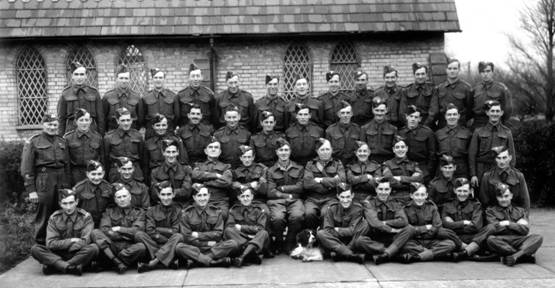
Chapel St Leonards, Anderby and Hogsthorpe
Members of the Home Guard © AE Wrate, Skegness
Back row:
Dave Short, Bob Taylor, Harry Epton, Ray Sharpe, Stan Grantham, Len Ingoldmells, Sam Scott, Billy Willson, Alf Johnson, Tom Hill, Mervyn Clark, George Dennis, Fred Dennis.
Middle row:
Tobias Harriman, Bob Thorn, Ben Clark, Silas Willey, Fred Boulton, Horace Grantham, Percy Ranson, Bill Sylvester, Tom Wright, Harold Brough, Geoff Hallgarth, John Hill, Frank Brough.
Front row (seated):
Charlie Knight, Jos Simpson, John Jinks, George A Young, Harry Atkin, Steve Lucas, Jack ‘Poppa’ Taylor (Lieutenant) and dog, Edgar Brown, Hedley Lucas, Norman Richardson, Billy Turner.
Sitting on ground:
George Lyle, Jim Lenton, Arthur Bradley, Sid Perry, Len Short, George Barker, Norman Willson, Harold Wright, Vic Chapman, Archie Hancock.
Ron’s letters were from Italy where he had been based at Lago airfield since his RAF Squadron (93) had moved from Capodichino in Naples in January 1944 on a day when they witnessed the first lava flow heralding an eruption of Mount Vesuvius.
‘Deliverance-Day’ was an apt interpretation, but officially D-Day simply means the day of the start of an operation, so every military operation has its D-Day. However the one on 6th June 1944 (the start of Operation Overlord) is unique in its popular recognition.
The Home Guard photograph, believed taken by AE Wrate, Skegness, was loaned by George and Dorothy Barker (who supplied all names in the caption). Permission for publication has been kindly agreed by Martin Wrate of Wrates Scholastic Photographs Ltd, Prince George St, Skegness.
Have you read an introduction to May Hill & family (includes photographs) and explored ‘The Casualties Were Small’?

